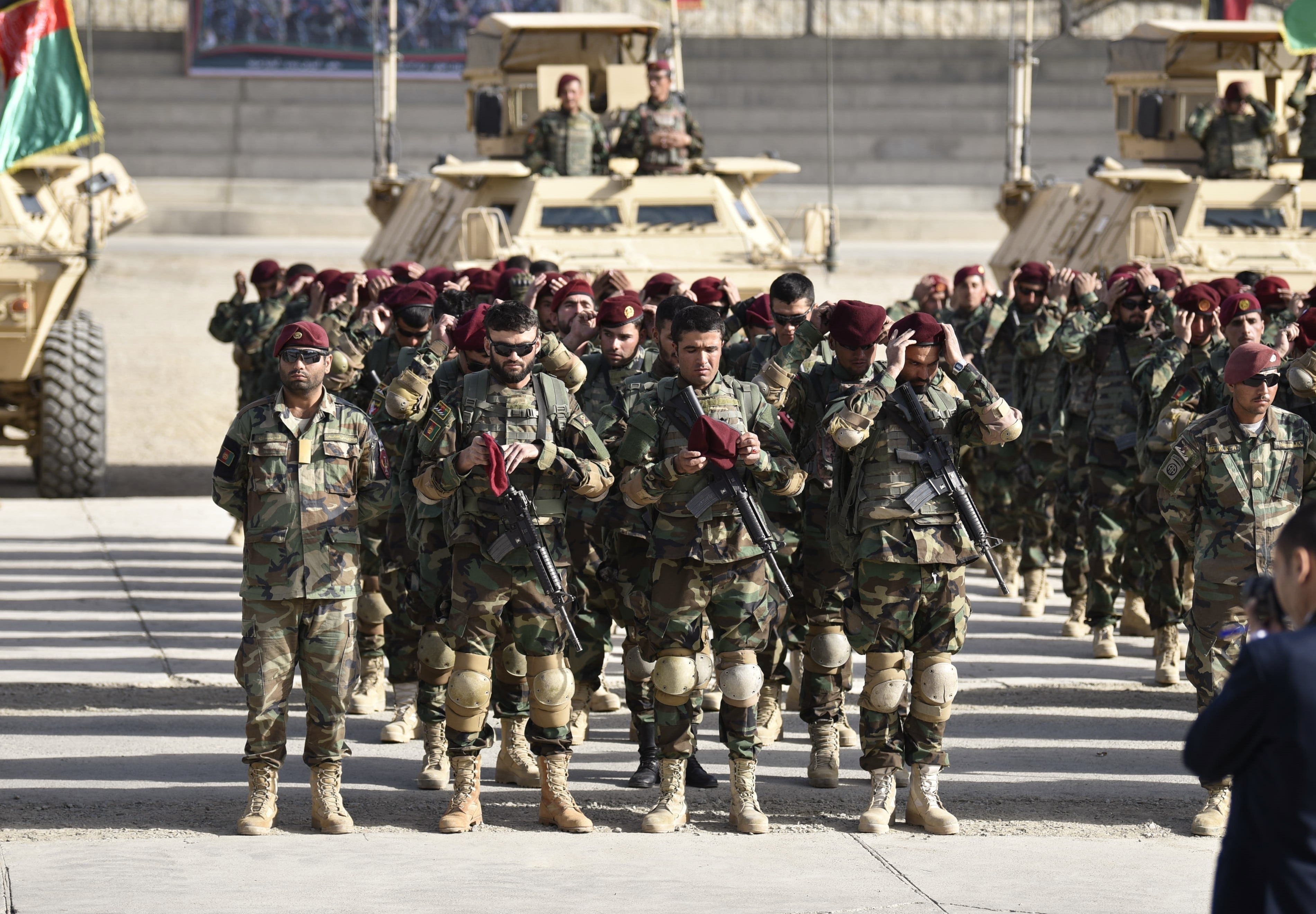MUNICH ― Defense Secretary Mark Esper on Thursday confirmed a U.S.-Taliban peace deal is “on the table,” and that it hinges on a seven-day reduction in violence ― a sign that all sides are closer than ever to ending of the 18-year conflict, America’s longest war.
Esper and Secretary of State Mike Pompeo are expected to finalize details when they meet with Afghan President Ashaf Ghani at the Munich Security Conference this week. The meeting comes just days after President Donald Trump reportedly approved a conditional peace deal with the Taliban that would withdraw the last American troops from the country.
“The best if not only way forward is a political agreement,” Esper said at the NATO Defense Ministerial Conference in Brussels. “We have the basis for one on the table, we are taking a hard look at it, we are consulting with our allies, we are consulting with Congress and others. And I think peace deserves a chance, but it will demand all parties to comply with their obligations, if we move forward.”
The agreement, which Trump would still have to formally approve, calls for both Taliban and U.S. forces to pledge to adhere to a week’s “reduction of violence” that would lead to an agreement signing between the United States and the Taliban, according to the Associated Press. That would be followed, within 10 days, by all-Afghan negotiations to set the road map for the political future of a post-war Afghanistan.
Esper declined to discuss the potential deal in detail, but said, “It is our view that seven days, for now, is sufficient. Our approach, as always, is conditions based, so it will be an evaluative process as we go forward―if we go forward.”
Other conditions in the deal would reportedly include a Taliban pledge not to associate with al-Qaida, the Islamic State group or other militant groups.
RELATED

Esper’s remarks came after U.S. national security adviser Robert O’Brien said Tuesday he was “cautiously optimistic” there could be a peace deal over the next few days or weeks, but that a withdrawal of U.S. forces is not "imminent.” Also, Ghani tweeted that Pompeo called him to report “notable progress” in talks with the Taliban.
“The president had made it very clear that there will have to be a reduction in violence and there will have to be meaningful intra-Afghan talks for things to move forward,” O’Brien said in remarks at the Atlantic Council.
At Munich, the U.S. and Afghan leaders will likely focus on finalizing just how violence reduction is defined, how it’s monitored and how long it would have to last for the U.S. to sign a deal with the Taliban, according to Michael Kugelman, the Wilson Center’s lead Afghanistan specialist.
“We're at a pivotal point in this process, because the two sides are now closer than they've ever been before to a deal. But we should anticipate a few more bumps even as we approach the finish line,” Kugelman said.
The Taliban managed to impose a brief ceasefire during the Eid holiday several years back, but it’s unclear whether the Taliban senior leadership can control its members enough to reduce violence within the agreed period. “This time around will be longer and a lot more complex,” Kugelman said.
Munich will also host U.S. lawmakers, to include South Carolina Republican Sen. Lindsey Graham, who seems to be shedding his past reluctance to embrace a troop withdrawal. The Trump administration will have to convince him and other skeptics in Congress that the Taliban will abide by its commitment to scale down violence.
“U.S. officials will need to convince them that this thing can be pulled off, and it'll be easier to make that argument if they can show that the right monitoring mechanisms will be in place,” Kugelman said.
Finally, the U.S.-Taliban talks themselves have been difficult, but they are nothing compared to the complex peace, reconciliation and power-sharing negotiations to come between the Taliban, the Afghan government, and other Afghan political stakeholders.
“Given the messy Afghan political situation, including a prolonged election crisis and deep rivalries between powerful factions," Kugelman said, “it’s going to be a tall order to launch much less conclude a successful peace process resulting in a power-sharing deal with the Taliban.”
Shawn Snow, of Military Times, contributed to this report.
Joe Gould was the senior Pentagon reporter for Defense News, covering the intersection of national security policy, politics and the defense industry. He had previously served as Congress reporter.







